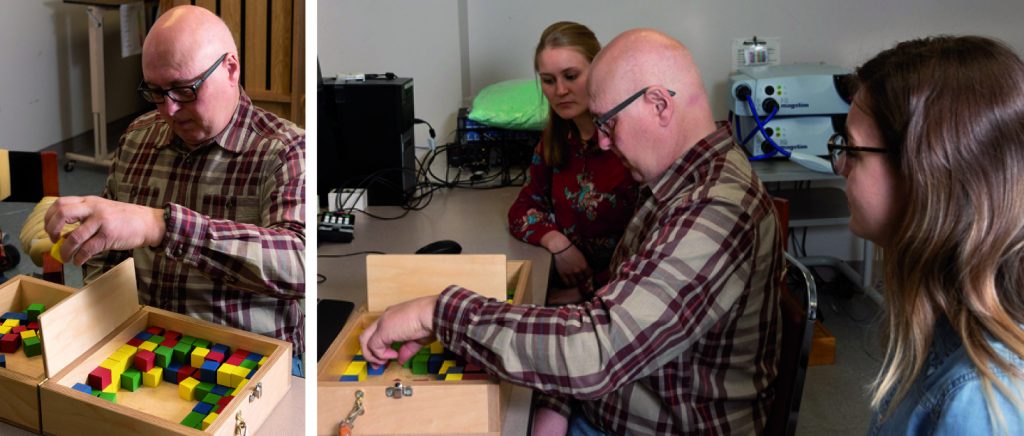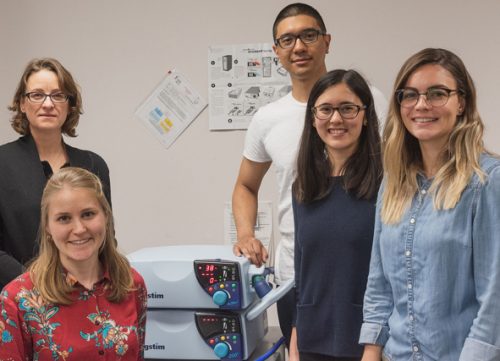Brain Lab – Brain Research and Imaging of Neurorehabilitation Laboratory
 Description
Description
The rapid growth of the aging population is becoming an important concern since it will result in significant economic repercussions on society. Age is the most important risk factor associated with strokes, which suggests that an increasing number of people will suffer from this condition in the future. In adults, regeneration of lost brain tissue due to aging or damage is limited. Maintenance or regaining of functions is thought to be a consequence of reorganization of the interactions between elements within specific brain networks. Therefore, it is vital to develop and use tools that will allow us to identify these interactions and to assess how they affect motor performances.
Neurorehabilitation tools, such as physical training and stimulation protocols, are currently used to promote plasticity changes in aging and stroke patients’ brains, with the goal of maximizing efficient utilization of the remaining brain structure in order to optimize a given function. Only a better knowledge of the precise mechanisms underlying these interventions on the brain will allow clinicians to incorporate these tools in their practice and legitimize the costs of these therapies to our various health care systems..
Recent advances in neuroimaging techniques have provided the means to investigate the subtle changes occurring in brain networks and the variations induced by the usage of an intervention. In this research program, I propose to use the newest advances in the field of imaging to study stroke and age-related brain reorganization and its possible role in the maintenance or gaining of performance, with a particular focus on the motor areas. The long-term goal of my research program is to use neuroimaging data to select the specific subpopulations that are more inclined to benefit from a particular therapy in order for them to regain or alleviate age-related decline in motor performances.
Key-words
Aging, stroke, neurorehabilitation, motor control, neuroimaging, neurophysiology, biomarkers
Axis and research theme
AXIS 1 – Sensory, Motor and Cognitive Functions and Activities
THEME 1 – Functional Mechanisms
Research team
Marie-Hélène Boudrias, pht, Ph.D.
Fabien dal Maso, Ph.D.
Contact information
BRAIN Laboratory
CRIR–Jewish Rehabilitation Hospital
CISSS de Laval
3205, Alton-Goldbloom Place
Laval QC H7V 1R2
Photo credits and copyright: © CRIR / Yvonne Richard Photographie

